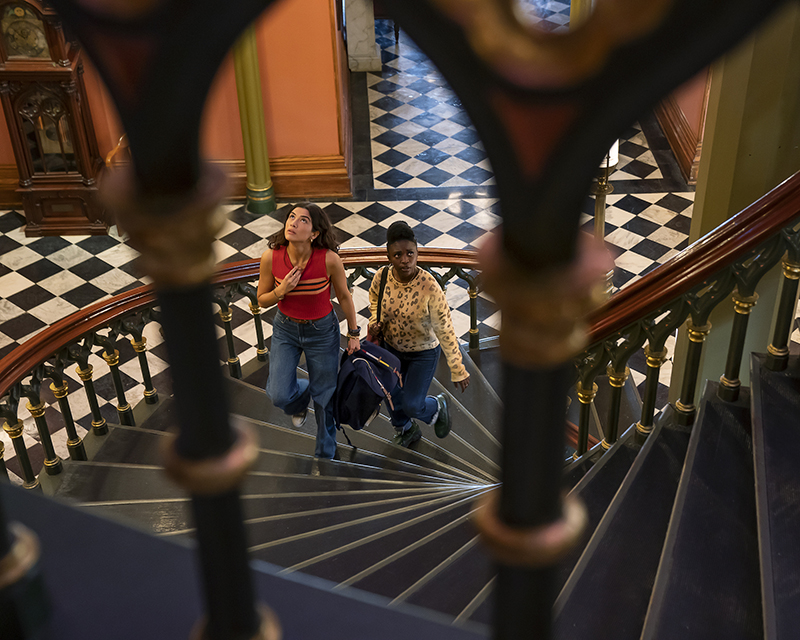
How is Baton Rouge’s recent film boom impacting city culture?
When Ugonna Njoku began work on his documentary, the LSU graduate started with what he knew best: his experiences with and connections in Baton Rouge.
The Social Boot: Boundaries Unchained explores the intersections between health and community belongingness in the Deep South. Aiming for a release late this year or early next year, Njoku has been working on the project since 2020.
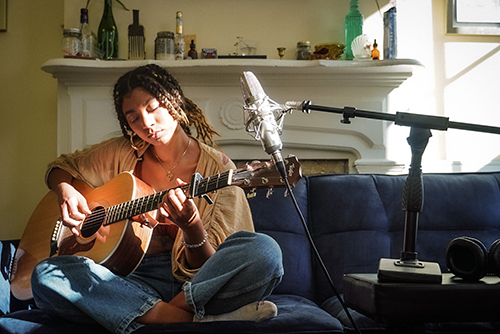
It began as part of his senior thesis, and then he spent much of 2021 and 2022 filming and traveling for it. Hoping to take a more nuanced approach to the South’s culture, showcasing as many perspectives as possible, he ventured from Houston to Atlanta. Scenes of the Louisiana State Capitol building and neighborhoods around town are seen prominently in the film, as well.
|
|
Financing the documentary without any major backers, Njoku says it was very independent in its production, relying on the community to get it made. Unlike large-scale projects with seemingly unlimited funding and resources, crowdfunding is common for independently produced film and television projects in Baton Rouge.
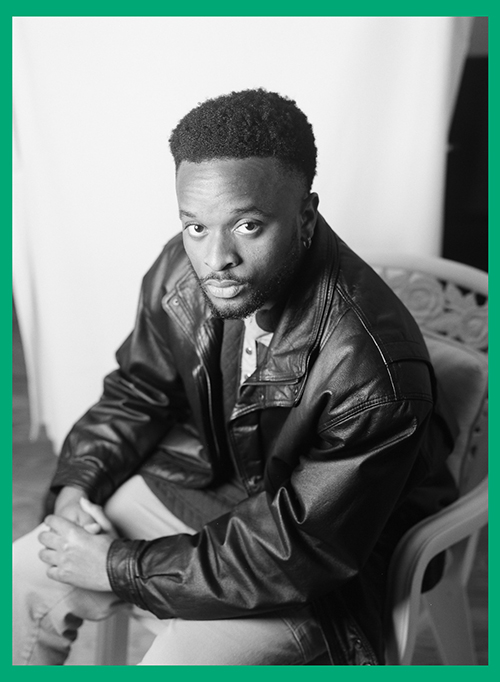
WHAT HE DOES
UGONNA NJOKU IS AN INDEPENDENT FILMMAKER BEHIND THE SOCIAL BOOT: BOUNDARIES UNCHAINED DOCUMENTARY.
While that can present a challenge, it also often means a project’s crew and supporters contribute to a homegrown authenticity. For example, when Hurricane Ida occurred, Njoku says both the film’s subjects and crew were affected—which he says he ultimately found a way to work into the storyline.
In the same way Njoku’s documentary seeks to connect creatives and establish community, so does the growing local film industry at large.

Playing host to both independent productions, like Njoku’s, and large-scale productions, like National Treasure: Edge of History, is important to cultivating a healthy filmmaking environment, says Baton Rouge Film Commission executive director Katie Patton Pryor. The melding of local and large-scale productions is what she calls the “cultural nucleus” of the film community.
“I think it’s a good way for the film community to introduce its work to the general community of Baton Rouge and those who like to support the arts,” Pryor says.
While the COVID-19 pandemic slowed things down in 2020 and 2021, large-scale production picked up faster than ever last year. Film spending in Baton Rouge nearly tripled in 2022, with productions investing $81.5 million as of November, compared to about $28.3 million in 2021. It marked the highest total since at least 2017.
In downtown Baton Rouge, streets and venues were often blocked off, while the cast and crew of productions like National Treasure shot scenes. Film and TV sets were built across town, from the sprawling stages of Celtic Studios to local parks and neighborhoods. And when students stormed the field after the Tigers’ upset of Alabama, even LSU got in on the action as the crew of Matthew Perkins’ football-themed movie The Mascot captured it all.
Even when the industry typically slows down toward the end of a calendar year, the quantity of working productions this past holiday season remained strong, according to the Baton Rouge office of NOVAC (New Orleans Video Access Center).
Seeing the yellow “To Set” signs around town and spotting a celebrity here or there has officially become a common occurrence again.
![]()
‘A love letter’ to the city
The film scene isn’t just exposing Baton Rouge residents to new art forms. It’s exposing the country at large to Baton Rouge.
Perhaps the biggest show to film recently in the city was the Disney+ National Treasure: Edge of History television series. It was shot primarily at Celtic Studios, Louisiana’s largest dedicated film studio, as well as local venues like Squeaky Pete’s bar on Third Street.
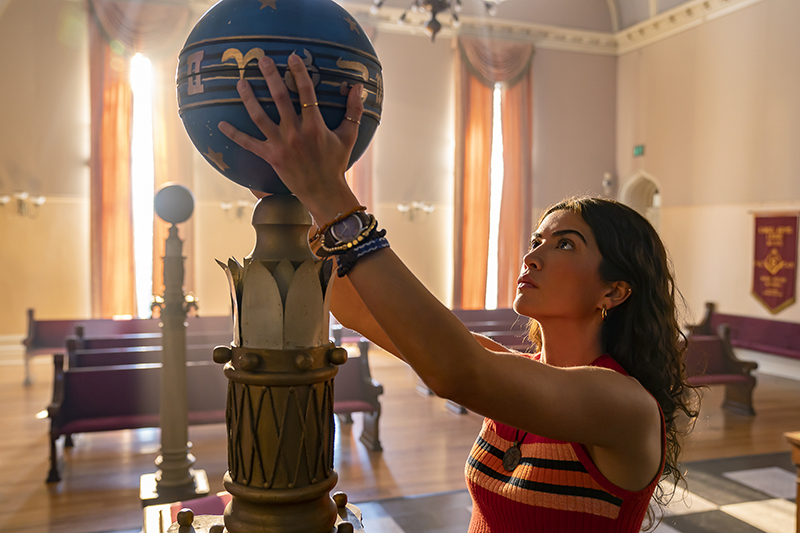
Husband and wife screenwriting duo Cormac and Marianne Wibberley say they wanted to depict Baton Rouge as itself—something not often seen in productions coming to the city. The Wibberleys found our area “Washington-esque” in its historicism, they told 225 during a set visit this summer. It was a perfect fit for their story focusing on underrepresented history—and part of why the team ultimately chose Louisiana’s Capital City over spots they considered in New Orleans and Florida.
The result, according to Marianne, is a series acting as “a tour of Baton Rouge” and “a love letter” to the city.
“There’s this mythical thing about Baton Rouge,” Cormac adds.
The show began streaming in December, after spending much of 2021 and 2022 filming around town. A long-running production that could take on multiple seasons means stable jobs will be created for local filmmakers in their own backyards—as opposed to traveling gigs in California, New York or nearby New Orleans, Pryor told 225 last spring.
“A series is the best case scenario for any city, and a series that represents the city as itself is immeasurably beneficial,” she says.

WHAT SHE DOES
Katie Patton Pryor is executive director of Baton Rouge Film Commission. Her job is to promote the city as a film location to a worldwide industry, supporting the growth of the local creative economy.
When it comes to luring filmmakers to Baton Rouge, tax incentives are an important part of the story. Current incentives include up to 40% tax credits on qualified spending. Base credits start at 25%, and increase if a production meets other qualifications.
An extra 5% credit is added for productions that film outside of metro New Orleans. A 10% credit is added for the use of a Louisiana-written screenplay. And a 15% payroll credit is given for employing Louisiana residents.
The current incentives program is set to end in 2025, but supporters hope it will be extended in this year’s fiscal session.
Because programs like these help reinvest into the local community and create an environment where more productions, both independent and big budget, can be produced in Baton Rouge and around the state, Pryor says.
“It’s all about reinvesting here to help it grow and help bring about the next generation of storytellers in Louisiana,” Pryor explains.
Showcasing local productions
Last April, four local films were screened at the annual Ebb & Flow Festival. The screenings, hosted in part by the Baton Rouge Film Commission and the Arts Council of Greater Baton Rouge, would turn out to be a test run for a new festival dedicated entirely to screening local films, connecting talent and acting as a celebration and cultivation of filmmaking.
While organizations across the city host film fests every year, including the Baton Rouge Jewish Film Festival and the Baton Rouge Irish Film Festival, as well as the undergraduate student-focused Take 6 Film Festival, the last time Baton Rouge hosted a festival for locally produced films was in 2018 during the now-defunct Louisiana International Film Festival.
Though the new festival is still in the works, Nathan Hall—one of the central voices behind it—envisions it as a way to highlight the independent filmmaking and artistic spirit of the city. Hall is executive associate of Baton Rouge Film Commission, as well as an independent filmmaker. His studio, Unoriginal Films, is developing a Western fantasy-horror film called Icarus.
![]()
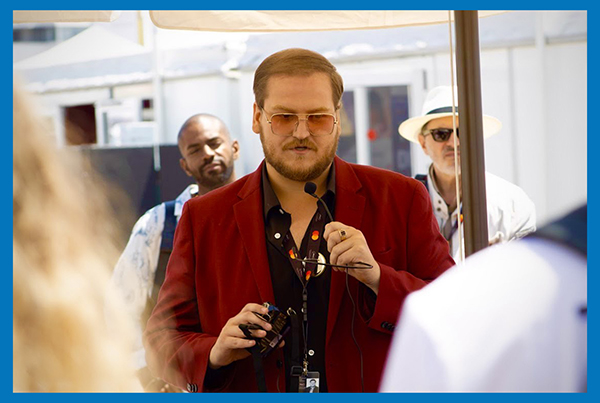
WHAT HE DOES
Nathan Hall is executive associate of the Baton Rouge Film Commission, as well as an independent filmmaker, whose studio, Unoriginal Films, is currently developing a Western fantasy-horror film called Icarus. He’s currently working to launch a new local film festival.
![]()
The new event would be staged downtown, which Hall sees as an opportunity to connect and collaborate with the many other arts and music festivals that happen in the neighborhood.
The prospective film festival, which is unconnected to Hall’s work at the Baton Rouge Film Commission, would be a collaboration with the Arts Council of Greater Baton Rouge and local business owner James Curtis.
“The overall goal would be to have a place where all the filmmakers and artists in our area can work with each other and communicate,” Hall says. “At the end of the day, we need to have cultural exports, as well as imports.”
![]()
Training the next generation
In fact, cultivating that local talent—and keeping it here—is perhaps the most crucial initiative underway in the industry.
The Baton Rouge office of NOVAC is one of the primary sources of training and networking for local film professionals. It provides both educational resources and valuable connections to locals trying to break into the industry, as well as support for those already working in it.
“The best way to get started in the industry is being a production assistant. I started there,” Pryor explains, “and I strongly recommended NOVAC’s PA Training Intensive. It’s a boot camp for production assistants, and when a person goes through it, it shows they know things like set etiquette and how to work a 12-hour work day.”
Between the three universities in the area—Southern University, LSU and Baton Rouge Community College—and NOVAC, the film industry is bursting with rising talent ready to be trained.
At LSU, student filmmakers are now being taught on state-of-the-art technology. Thanks to a five-year $1.25 million grant from Louisiana Economic Development’s Entertainment Division awarded in 2021, LSU’s digital media center was outfitted with a virtual production stage, utilizing the same technology from Michigan-based Fuse Technology Group that brought The Mandalorian to the small screen.
A curved wall of LED screens capable of producing 3D environments, in conjunction with video game design software from Epic Games and motion capture programs, was installed at LSU in February 2022.
There, students can get firsthand experience taking on film crew roles, acting as camera operators, motion capture supervisors or video engineers. The technology is run like a professional film set, with multiple disciplines coming together to work with the technology of the future.
“One of the coolest things is that we are able to get students from the school of theater, screen arts, science, digital media, engineering, music. There are just a lot of areas we are able to bring together that do a really good job at a particular skill set,” Derick Ostrenko, a professor at the College of Art & Design, told 225 this summer. “We’re showing the students what’s possible and how to bridge all these technologies together and letting them make their own projects.”
It’s all about increasing awareness about local film jobs, says Stevee-Rayne Warren, NOVAC’s national workforce development manager.
In fact, when Warren was interviewed by the Los Angeles Times this past November, she confessed that she didn’t think the film world would ever be an option for a Baton Rouge native like her. She assumed she’d have to move to New York or Los Angeles.
But an intern job at NOVAC quickly morphed into a viable career, and she rose through the ranks to become its national workforce development manager. Now, she’s helping production assistants break into the industry and connecting crews with talent.
![]()
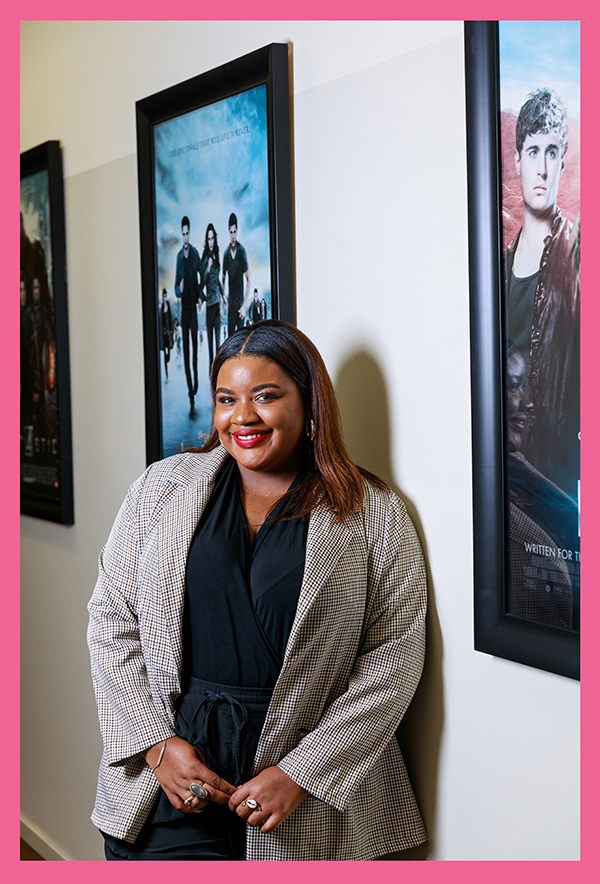
WHAT SHE DOES
Stevee-Rayne Warren is the national workforce development manager for NOVAC (New Orleans Video Access Center). She helps connect productions with crews and talent.
![]()
She says if industry executives see that the resources and talent are there, more productions will follow.
“We want to help educate people as to what opportunities are out there,” she says. “But at the same time we want to meet the needs of the industry as well—so that there is a cohesive partnership and that we are continuing to develop and enhance all of the talent and potential that’s already here in Baton Rouge.”
 STORIES FROM SET
STORIES FROM SET
Want to meet more film industry workers? Click below to read tales from different film and TV departments:
• Locations
• Scripts
• Props
• Directing and producing
• Visual effects
• Background acting
This article was originally published in the February 2023 issue of 225 magazine.
|
|
|
